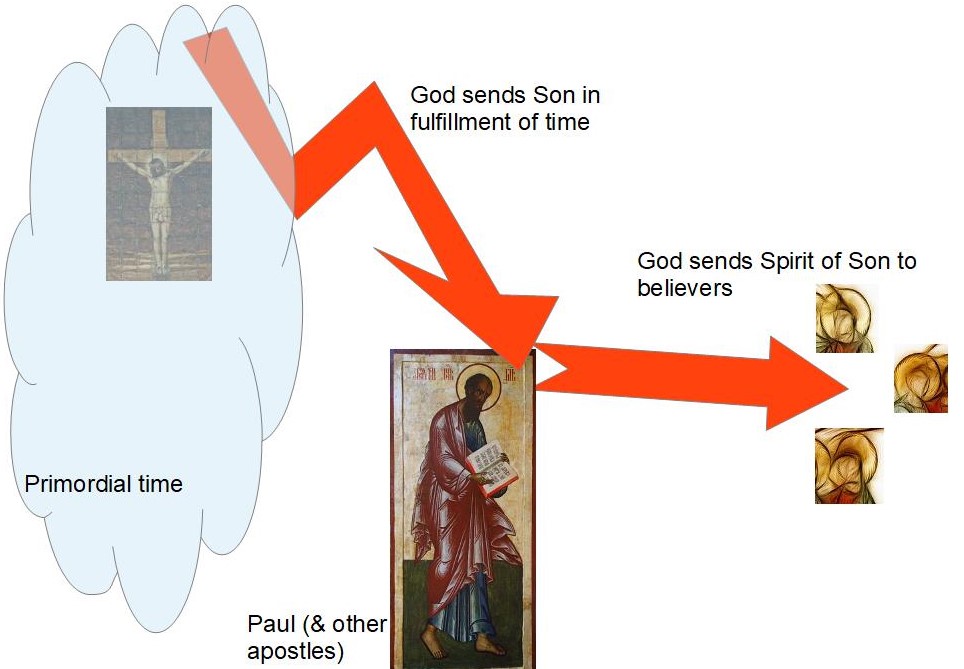
A frequent line of argument by scholars and others attempting to “prove” the historicity of a Jesus behind the gospel narratives is to focus on biblical passages pointing to the “humanity” of Jesus, and sometimes his geographical and temporal location. It often appears that such people assume that a figure who is human and said to appear in Palestine in the early first century is clearly historical. Of course only a moment’s thought should dispel a necessary connection between “human” and “genuinely historical.” Would it even be possible for anyone to finish counting the number of fictional “human” characters in stories, ancient and modern, in the world? If we confine ourselves to biblical and ancient Jewish stories that look like history, I suspect the number of fictional “humans” would still outnumber those who we can be sure were historical.
But all of that is just an aside. Let’s continue with Earl Doherty’s discussion of the “born of a woman” expression in Galatians 4:4. So far we have the following:
- Addressing Simon Gathercole’s “Historical and Human Existence of Jesus” (#1)
- Addressing S. Gathercole’s Case for Jesus’ Humanity: “Born from a Woman” (#2)
- Addressing S. Gathercole’s Case: “Born from a Woman” (#3)
And we have linked to Earl Doherty’s old website in which he sets out an earlier version of the chapter we are addressing: Supplementary Article No. 15 – “Born of a Woman”? Reexamining Galatians 4:4.
Recall that the reason we are delving into Doherty’s discussion of the Galatians passage in such detail is to demonstrate the extent of the failure of scholars, in this case Simon Gathercole, to even characterize a mythicist argument correctly, let alone engage with it, and to show just how wrong it is to assume that a mythicist argument must rely on some cheap interpolation card to deny the “natural meaning” of a text. One does have to wonder how many critics (Bart Ehrman included) have actually taken the trouble to read Doherty’s work in full. We will see in the following post how Gathercole has likewise demonstrated his failure to read anything but a few excerpts of the hypothesis he is opposing. Until scholars do really read a book before opposing it I suggest that they will only ever be addressing their own closed circle and supporters while complaining about the unwashed general public being so benighted as to too often sympathize with “mythicism”.
So let’s continue:
As noted by Edward D. Burton in the International Critical Commentary series (1924), the two qualifying phrases, “born of woman, born under the Law” (genomenon ek gunaikos, genomenon hupo nomon) are descriptive of the Son, but not specifically tied to the ‘sending.’ Burton says [Galatians, p.218-19]:
The employment of the aorist [a past tense participle] presents the birth and the subjection to law as in each case a simple fact, and leaves the temporal relation to exapesteilen [“sent”] to be inferred solely from the nature of the facts referred to….But the phrases are best accounted for as intended not so much to express the accompaniments of the sending as directly to characterize the Son, describing the relation to humanity and the law in which he performed his mission.
For those phrases, Burton is not ruling out an understanding of an intended temporal relationship to the verb, but he is saying that it is not grammatically present (such a thing would normally be done by using the present participle). Yet if “born of woman, born under the Law” can be seen as not necessarily qualifying the sending itself, this further frees that ‘sent’ thought in verse 4 from having to be a reference to the arrival in the world of the incarnated Christ in a human body.
At the same time, we might suggest that this absence of a linkage between verb and participles would more likely be the product of an interpolator than Paul himself who, if he intended the phrases to qualify the “sent” idea, would normally have put the participles in the present tense rather than the aorist. An interpolator, on the other hand, would have been focused on the “fact” of these ‘born’ phrases to serve his own purposes, as we shall see. (Doherty, 204)
The lay public interested in these questions are on the whole educated enough to take an interest in such grammatical arguments. They would love nothing more than to see mainstream scholars engage with them for their benefit. When the question of interpolation is raised it is done so with sound contextual and grammatical justification.

